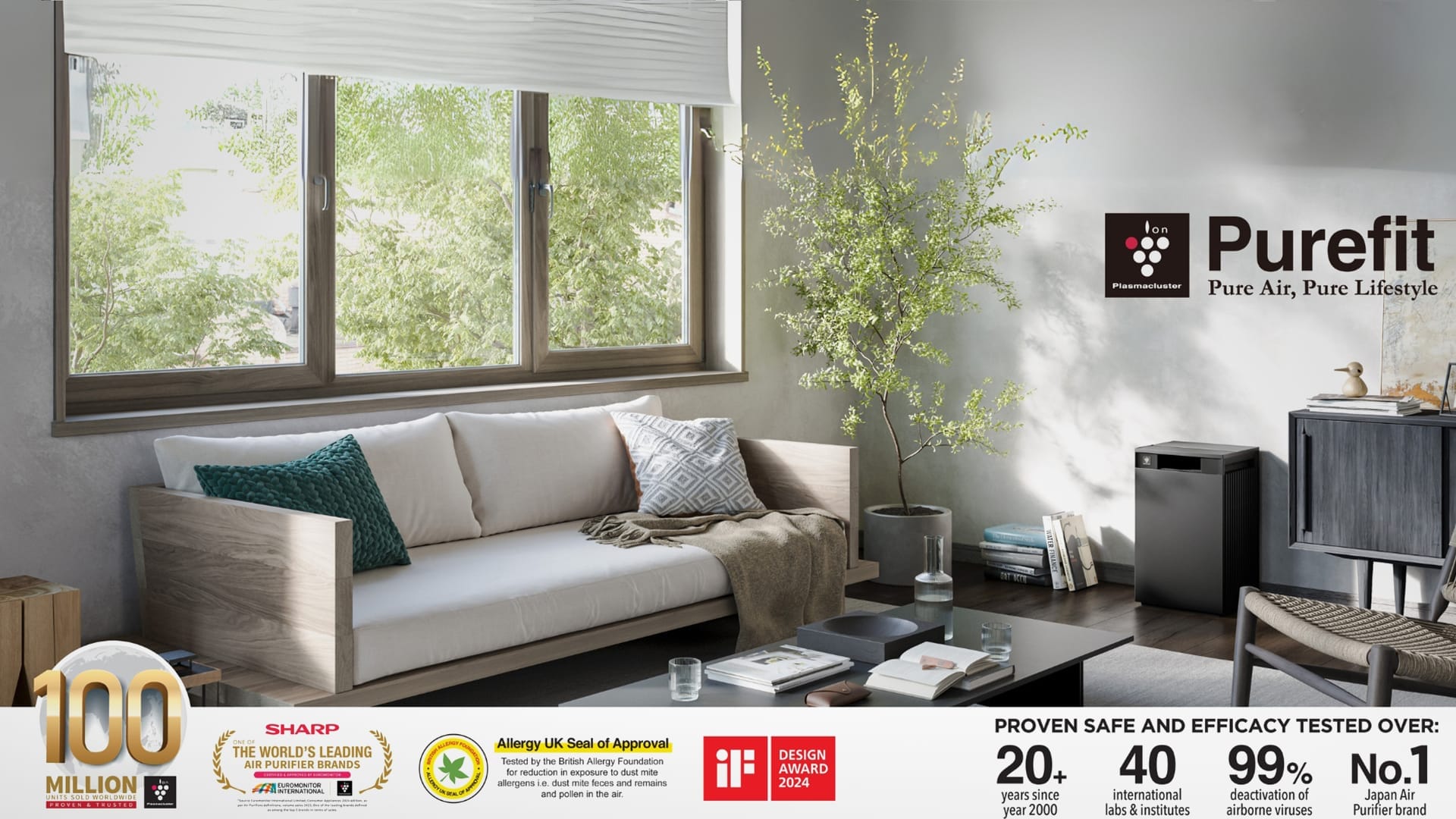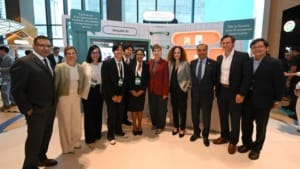SHARP’s Plasmacluster technology improves air quality, health, and cognitive performance
SHARP’s Plasmacluster technology improves air quality, reduces allergens, and boosts cognitive function, creating healthier and more productive homes.

SHARP’s Plasmacluster technology has been enhancing indoor air quality for over two decades, benefiting both humans and pets. Recognised as the No. 1 air purifier brand in Japan, it has been certified by more than 40 international laboratories and institutes. By generating positive and negative ions similar to those found in nature, the technology purifies the air, creating cleaner and healthier indoor spaces.
Table Of Content
Recent studies confirm its effectiveness in suppressing airborne allergens, viruses, bacteria, and mould while also improving cognitive performance. These findings further cement SHARP’s Plasmacluster technology as a leading solution for healthier living environments.
Cleaner air and better health for homes
A study conducted by Shizuoka University, commissioned by SHARP, found that Plasmacluster ions effectively neutralise harmful airborne particles. The technology works by generating ions through plasma discharge, which then form clusters in the air. These clusters attach to bacteria, viruses, and other pollutants, breaking down their protein surface and rendering them inactive.
The study highlighted the technology’s ability to suppress allergens, bacteria, and mould, ensuring a safer indoor environment. Scientific research spanning more than 20 years has also shown that Plasmacluster technology reduces allergic reactions and improves respiratory health. This makes it particularly beneficial for individuals sensitive to dust, pollen, or pet dander.
Additionally, research demonstrated its impact on plant growth, with seedlings exposed to Plasmacluster ions growing significantly taller than those exposed only to fans. These findings reinforce the technology’s ability to create healthier environments, not just for humans but also for pets and plants.
Boosting cognitive performance and focus
Beyond air purification, Plasmacluster technology has been found to enhance concentration and cognitive performance. Studies show that exposure to Plasmacluster ions can improve brain activity, which is particularly useful in focus-intensive tasks such as driving and sports.
In a driving study, participants exposed to Plasmacluster ions braked 0.5 seconds earlier, reducing their stopping distance by 7 metres. This crucial difference could prevent accidents by giving drivers more time to react. The study also found that drivers experienced smoother steering movements, indicating improved precision and control in both manual and self-driving vehicles.
Additionally, exposure to Plasmacluster ions helped reduce drowsiness, allowing drivers to stay alert for longer. The benefits were not limited to driving—athletes and esports players also exhibited increased brain activity and faster reaction times, further demonstrating the technology’s role in boosting mental focus and performance.
Creating a healthier home environment
Plasmacluster technology goes beyond improving cognitive function—it also supports overall well-being at home. By neutralising odours and reducing airborne allergens, it creates a fresher and healthier living environment. Families and pets can enjoy cleaner air, reducing respiratory issues and enhancing overall comfort.
SHARP remains committed to advancing its Plasmacluster technology, ensuring that more households can benefit from its air-purifying and cognitive-enhancing effects. As a proven solution for healthier and more productive living spaces, Plasmacluster technology continues to set the standard for indoor air purification.
















